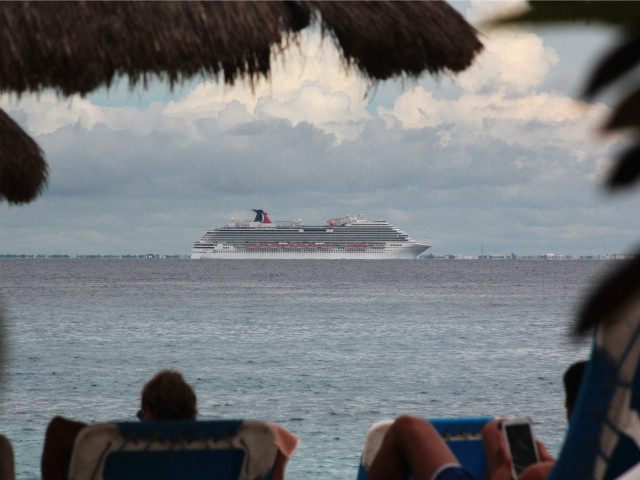Carnival Cruises has agreed to rescind its policy of not selling tickets for its newly-announced Cuba cruises to U.S. citizens born in Cuba. Should Cuba ban these individuals from docking, Carnival has promised to delay the program’s maiden voyage. This represents a change in policy following a civil rights lawsuit filed against the corporation.
Carnival Cruises CEO Arnold Donald issued a statement Monday announcing that the corporation would begin to sell tickets for its cruises on the “Fathom” cultural exchange line, which is scheduled to begin voyages to three ports in Cuba on May 1, a Marxist holiday known as “International Workers’ Day” or “May Day.”
“We want everyone to be able to go to Cuba with us,” the statement reads. “We remain excited about this historic opportunity to give our guests an extraordinary vacation experience in Cuba.”
Carnival previously banned Americans born in Cuba from purchasing tickets for the voyages, which it advertised as a chance to see “the real Cuba from the inside,” citing Cuban law that prohibits Cuban-Americans from traveling to the island by sea. Cuba has not yet changed its discriminatory law, and Carnival asserts it is working with the Castro dictatorship to try to persuade government officials to allow an exception to the law for cruise ships. “Again, we remain confident that we will reach a positive outcome and we continue to work full speed ahead in preparing for our every-other-week sailings from Port Miami to Cuba,” Donald asserted in his statement.
Abiding by the Cuban law banning Cuban-Americans from sailing into the island forced Carnival into a blatant violation of the 1964 Civil Rights Act, which protects Americans from discrimination by “places of public accommodation” for their “race, color, religion, or national origin.” Attorneys for plaintiffs in a lawsuit against Carnival are confident they could prove that a cruise ship is a “place of public accommodation,” as it sells tickets to the general public. “This has already been decided and Carnival knows about this,” attorney Robert Rodriguez told the Miami Herald last week. Rodriguez represents Francisco Marty, a Cuban-American veteran of the Bay of Pigs invasion — a military attempt at liberating Cuba from communism thwarted by President John F. Kennedy’s refusal to support the fighters once they were on the ground — who was hoping to buy a cruise ticket because he cannot fly into Cuba for health reasons.
Marty, CNN reports, hoped to take an “after” photo at Playa Girón, where the invasion happened, to compare to the photos of his arrest upon participating in the liberation effort.
In addition to the Marty lawsuit, Cuban-Americans and anti-discrimination activists protested outside of Carnival’s headquarters in Doral, Florida, holding up signs reading “no to apartheid” and “Carnival: Go but don’t discriminate.” The protesters hoped Carnival would postpone its voyages until it was possible to accommodate all passengers; with its new decision, Carnival will now be forced to postpone the voyage to Cuba if Havana does not change the applicable law by May 1. It is unclear whether passengers will receive a refund or a ticket for the cruise on another date.
The Coral Gables City Commission, which regulates the port the Carnival cruise would sail out of, recently passed a resolution demanding Miami-Dade County block Carnival from using their port if they did not abide by the Civil Rights Act.
Secretary of State John Kerry also condemned Carnival, stating at a visit in Miami that Carnival must not allow Havana to manipulate it into violating American law: “We should not be in a situation where the Cuban government is forcing its discrimination policy on us.”

COMMENTS
Please let us know if you're having issues with commenting.